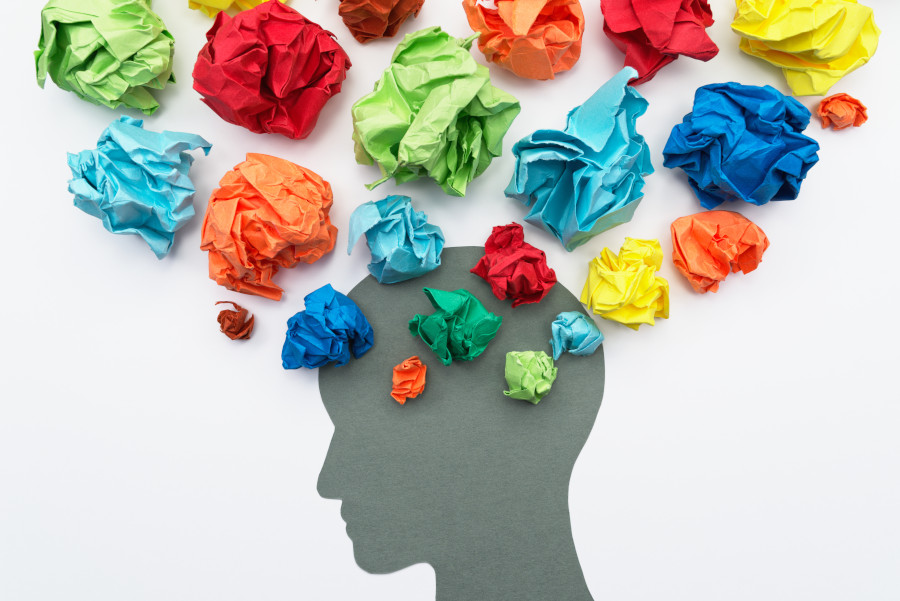Behavioral & Medical Comorbidities

Leading our psychiatry team is Dr. Colleen Ryan. Dr. Ryan has extensive experience in the field of psychiatry and is board certified by the American Board of Psychiatry and Neurology as well as the American Board of Preventive Medicine. Many patients seeking treatment for addiction also require treatment for psychiatric disorders, including mood and anxiety disorders, trauma and stress-related disorders, schizophrenia, and more. Our team of providers will work with you to create a treatment plan to put you on the path towards recovery.
Below, learn about a common comorbidities that require diagnosis and treatment before addiction can be treated for good.
4 BEHAVIORAL AND MEDICAL COMORBIDITIES THAT OFTEN ACCOMPANY ADDICTION
1. Anxiety Disorders
One of the most common behavioral comorbidities of addiction is a type of anxiety disorder. According to DSM-5 (Diagnostic and Statistical Manual of Mental Disorders, 5th Edition), there are currently five recognized anxiety disorders. These are Generalized Anxiety Disorder, Obsessive-Compulsive Disorder, Panic Disorder, Post-Traumatic Stress Disorder, and Social Anxiety Disorder.
We can help you overcome your mind’s need for harmful substances by treating anxiety disorders with cognitive behavioral therapy, psychotherapy, meditation, prescribed medication, and a healthy lifestyle. During your initial consultation, we will work with you to determine the most effective combination of treatments to help you overcome your anxiety and overcome your addiction.
2. Chronic Pain
One of the most common medical comorbidities of addiction is chronic pain. In fact, anywhere from 8% to 12% of people with chronic pain are addicted to opioids, and between 21% and 29% of people with chronic pain engage in opioid misuse. To overcome your addiction once and for all, you must first diagnose and treat the cause of your pain.
Treatment for chronic pain depends on the cause of your pain. Joint pain is often treated with minimally invasive procedures to restore lost cartilage or bone, nutritional supplementation to prevent further bone or cartilage loss, and physical therapy to strengthen the joints. Muscle pain is also treated commonly through a combination of physical therapy and nutritional supplementation. Nerve pain is most often treated through topical treatments and electrical stimulation.
3. Major Depressive Disorder
Depression is another incredibly common behavioral comorbidity of addiction. Unfortunately, some side effects of depression include apathy, anxiety, and aches and pains. Apathy makes it hard to muster the motivation necessary to try to take the first steps to overcome addiction, while anxiety, aches and pains can also create roadblocks on the path to recovery and wellbeing.
There are several ways to treat depression, which will give you the strength and energy to overcome your addiction once and for all. Though there are numerous depression treatments available, the most common treatment plans include a combination of cognitive-behavioral therapy and behavior therapy or cognitive behavioral therapy and psychotherapy.
4. Manic Depressive Disorder
A number of individuals with Manic Depressive Disorder also suffer from substance addiction. A study published by the American Journal of Managed Care revealed that of the manic depressive individuals who participated in a national study, roughly 56% had suffered from drug or alcohol addiction at some point, 46% had abused alcohol or suffered from alcohol addiction and roughly 41% suffered from drug addiction or abused drugs.
Manic Depressive Disorder may be treated by support groups, family therapy, psychotherapy, cognitive behavioral therapy, or a combination of treatments. Anticonvulsants and antipsychotics may be appropriate, but you should not expect to be prescribed an SSRI.
DISCOVER HOW TO OVERCOME YOUR ADDICTION ONCE AND FOR ALL
If you’re sick and tired of the way your addiction is affecting your life, you’re not alone. Every year, millions of Americans seek treatment from a specialty facility for addiction. Contact our experts at 2nd Chance Clinic in Lexington, KY now to learn more about how we can help you overcome your addiction.
Commonly Abused Opiates:
- Percocet
- Hydrocodone
- Oxycodone
- Morphine
- Codeine
- Fentanyl
- Heroin
“HEALING DOES NOT MEAN THE DAMAGE NEVER EXISTED. IT MEANS THE DAMAGE NO LONGER CONTROLS OUR LIVES.”
